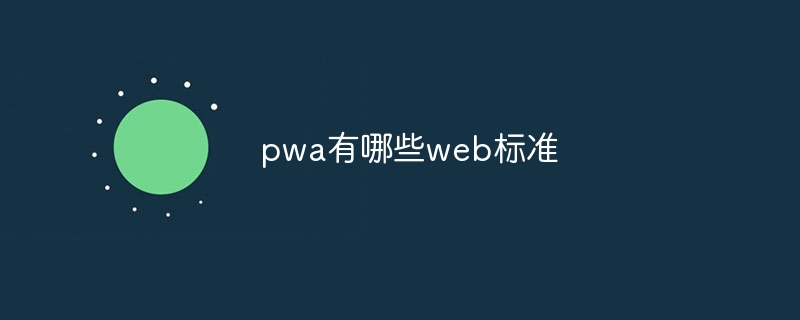PWA (Progressive Web App) is an application developed using Web technology, which combines the advantages of Web applications and native applications. PWA does not depend on a specific platform or operating system. It can be accessed directly through a browser and has the functions of native applications such as offline access, push notifications, and background running. PWA is based on a series of Web standards, the following are some of the main standards:
Service Worker Service Worker: Service Worker is one of the core technologies of PWA. It is an independent web page Running JavaScript scripts are used to implement functions such as offline caching and push notifications.
Web App Manifest Web App Manifest: Web App Manifest is a JSON file used to describe the metadata information of PWA, such as application name, icon, startup method, etc.
HTTPS security protocol: To ensure the security of the PWA, the HTTPS protocol must be used for communication. This protects users' data and privacy and provides a more secure access experience.
IndexedDB offline data storage: IndexedDB provides the ability to store large amounts of structured data on the client and supports offline access.
Web Push Push Notifications: By using the Push API and push services, PWAs can send push notifications to users even when they are not in the application.
App Shell App Shell Mode: App Shell is a way to cache the core interface and functionality of an application locally to quickly load the application offline.
These standards and technologies together form the basis of PWA, allowing developers to create web applications with a native application-like experience. With PWA, users can access the application as if it were a native app in a browser and enjoy features such as offline access, fast loading, and push notifications.





















